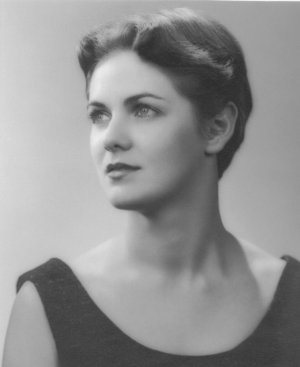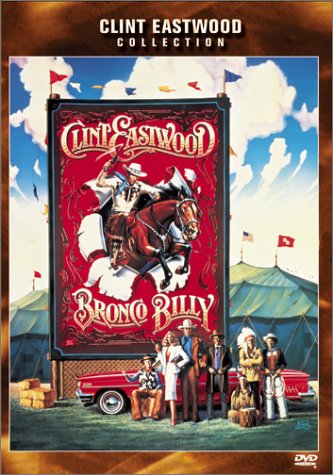 :
Study
Questions: Week Eight
:
Study
Questions: Week Eight :
Study
Questions: Week Eight
:
Study
Questions: Week Eight
A Different Kind of Hero.
Play Misty for Me (1971)
Bronco Billy (1980)
 1.
How do the opening scenes of Play Misty for Me help establish the character
of Dave Garland (Clint Eastwood)? Consider his job, his relations with coworkers,
his private life?
1.
How do the opening scenes of Play Misty for Me help establish the character
of Dave Garland (Clint Eastwood)? Consider his job, his relations with coworkers,
his private life?
2. In what ways is Dave similar to the Eastwood hero in Fistful of Dollars, Dirty Harry, and High Plains Drifter? In what way is he significantly different? Could the two versions of the Eastwood persona be seen as mirror images of each other? Why? Why not?
3. How does Eastwood (the director) allow Evelyn Draper (Jessica Walter) emerge gradually from the margins of the narrative? Consider her appearance from the introductory scene in the bar to the scene in the restaurant where Dave is being interviewed for a new and better job.
4. What would you say is the connection between Dave's fear of commitment and the power Evelyn has over him? Not a simple question, but an important one.
5. In what ways are Evelyn and Tobie Williams (Donna Mills) an example of the division of women into moral opposites as they have been portrayed in a long history of fiction and film? Pay special attention to their physical appearance, their views of romantic love, their behavior, etc.
6. Examine the visual images which point up the power relationship between Dave and Evelyn. How many can you find in the bedroom scenes?
7. What is the thematic significance of Evelyn moving from Dave's private world (night and the bedroom to his public world (the business lunch, her becoming Tobie's roommate)?
8. Why does Dave lie to the police and deny his affair with Evelyn? How does his denial give Evelyn the upper hand?
9. What does the death of both Evelyn and Tobie imply about Dave's future?
10. As the questions above suggest, Play Misty for Me may be seen as more than a well-plotted thriller. In what ways is is a comment on the moral failures of the loner? How responsible is Dave for the deaths of his lovers?
11. What does the first performance of Bronco Billy's "most authentic wild west show in America" tell us about the talents of the performers? In what way might an "authentic wild west show" be a contradiction in terms?
12. What sexual overtones are evident in the blindfolded target act? How might it signify the film's larger themes?
13. Does Bronco Billy sound more like the No Name hero of Eastwood's early films or more like a Ranger Hal TV cowboy? Listen to what he says to his young audience (i.e. "don't ever tell a lie, and say your prayers").
14. If Bronco Billy and his performers function as America's mythic soul, what do Antoinette Lily and her family represent?
15. How does Eastwood draw upon and make fun of his screen persona in his encounter with the children skipping school to see him, and in the bank incident?
16. What is the significance of Antoinette's being able to match Billy shot for shot and drink for drink? Why does he feel obliged to say, "You don't do the shootin';" I do that."
17. What is the significance of each member of the traveling show? Do you see a connection between their need for Billy and the lack of supporting fathers? Does Eastwood suggest national myths help transcend personal privation? Does he (probably inadvertently) suggest that to share the American Dream we must remain childishly innocent?
18. What does he mean, when after revealing his past, Billy announces, "I am who I want to be"?
19. What is the significance of the final show in the new tent? Why is that tent made of flags and the music made of Sousa marches (the last being "The Stars and Stripes Forever")? How does the performance call attention to the end of the film itself and make us a part of Billy's audience?
20. What, in your estimation, does it mean to run away and join the circus? How does Eastwood turn this old dream into a political and social comment on present-day America? Given the chance, would you join Bronco Billy's "authentic wild west show"?